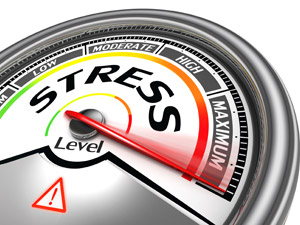I know that menopause weight gain is a real issue for so many women, so recently I asked the Slimpod Facebook community a question: ‘In three words, what does the menopause mean to you?’
To say I was flabbergasted by the reaction is an understatement! I’ve never had such an overwhelming response to a question before. And the variety of replies was a real eye-opener, with comments ranging from ‘breezed through it’ to ‘hell on earth’.
It really did paint a picture of just how individual a journey menopause is; it can be a completely different experience from one woman to the next. Because of that (and the frustrating fact that for a long time it was something of a taboo topic) there has historically been a real lack of information and support out there for women going through perimenopause and menopause.
But it’s a topic that needs and deserves some serious airtime, because the world population of menopausal and postmenopausal women is projected to be 1.2 billion by 2030. And for many of those women, the symptoms of perimenopause and menopause have a huge impact on their life and wellbeing. So I’m really pleased that the tide is finally turning in terms of research, awareness and help for women going through it.
Why do we gain weight in perimenopause and menopause?
As you’d expect, one menopause-related topic that crops up a lot within the Slimpod community is weight gain. During perimenopause and menopause, it’s common for women to put on weight and notice changes in our body shape. Often, it happens despite the fact that our diet and levels of activity are just as they’ve always been – this makes it feel extremely disheartening, as if it’s beyond our control.
The trigger for this is our oestrogen levels, which start to fluctuate and decline from perimenopause onwards. In women, oestrogen is produced in the ovaries, alongside progesterone. It’s a process that begins in puberty and ends when we reach menopause – the point when we stop menstruating altogether.
Oestrogen, of course, is linked to our reproductive health, but what many of us don’t realise is that it’s metabolically important for a whole host of other things, including bone strength, cardiovascular function and many neurological processes. So, because our body needs oestrogen to thrive, its natural reaction when levels begin to decline is to try and produce it in another way – namely, by producing more fat cells. Typically, these extra cells are produced around the middle of a woman’s body, which is why many of us feel we begin carrying more weight around our tummy, waist and hips.
A lack of oestrogen can also cause our metabolism to slow down and our bodies to become less effective at using starches and blood sugar, which increases our fat storage and makes it harder to lose any weight we gain.
And then, of course, there’s the fact we may be experiencing other symptoms of menopause, such as hot flushes, sleep disruption and emotional ups and downs. All of this can really affect our energy levels and motivation to eat well and exercise.
Essentially, menopause is a perfect storm for weight gain! It’s understandable then, that women often feel they’ve no choice but to accept it as part of the process. But that doesn’t have to be the case, because by being smart about what you’re eating, you CAN combat weight gain in menopause – and I’m not talking about calorie counting or following extreme, faddy diets.

How to combat menopause weight gain
The biggest tip I have to help you combat weight gain in menopause is to stop eating for the scales and start eating for hormone health. The best way to do that? Adopt the Mediterranean style of eating.
The Mediterranean diet has long been celebrated as being supportive of health, for both women and men. Multiple studies have shown people who eat this way have a lower risk of cognitive decline, cancer, heart disease and stroke.
But it’s especially supportive of women’s health, particularly as we enter perimenopause and menopause. This is because the foods that are typically included are low in fat, high in fibre and rich in phyto (plant) oestrogens and vitamins b, c, d and omega 3 – all of which help naturally stabilise oestrogen levels. By boosting your body’s oestrogen levels through your diet in this way, you effectively reduce its need to produce more fat cells in a bid to create oestrogen.
The great thing about the Mediterranean style of eating is it’s not ‘a diet’ in the sense of depriving yourself or enforcing rigid restrictions – in fact, there’s a real abundance of delicious foods involved! Which makes it far more likely to be a lifestyle change you can stick to.
What is the Mediterranean style of eating?
When we refer to a Mediterranean diet, we’re really talking about the types of cuisine you find in the countries that surround the Mediterranean sea, such as Greece, Italy and Spain.
Adopting this style of eating involves paying attention to the following general principles:
– Ensure that fruit and vegetables make up a significant portion of your diet, and aim to ‘eat the rainbow’ (i.e., include fruits and vegetables of all colours) to get the biggest variety of vitamins and minerals, along with a hearty dose of fibre.
– Choose whole grains, like brown rice, quinoa, and wholewheat bread.
– Include legumes and pulses like chickpeas, beans and peas.
– Opt for lean protein including fish (especially oily fish like salmon and sardines), chicken and turkey.
– Incorporate plenty of healthy unsaturated fats, such as olive oil, avocado, nuts and seeds.
– Switch out salt in favour of herbs and spices to add flavour to your meals.
– Limit the amount of red and processed meats you eat.
– Minimise sugary, processed foods and refined grains such as white bread and pasta.
– Increase your water intake.
The Mediterranean diet and other menopause symptoms
Following this style of eating to support your hormone health will absolutely help you prevent weight gain as you go through perimenopause and menopause. But it has the potential to help ease other symptoms of menopause, too.
I mentioned above that oestrogen is important for many neurological processes. As someone who’s been studying neuroscience and the brain for many years, I’ve been particularly fascinated by the work of neuroscientist Lisa Mosconi, whose research looks at what happens in the brain during menopause.
Lisa’s study has shown that hot flushes, night sweats, forgetfulness, mood swings and sleep disturbances during menopause can ALL be attributed to falling oestrogen levels in the areas of our brain that control our body temperature, memory, emotions and sleep/wake cycle.
And so it makes perfect sense that other studies have found emulating the Mediterranean way of eating may have significant benefits in relation to some of these neurological menopause symptoms.
How Slimpod can help
The Slimpod programme doesn’t include a prescribed diet or advocate deprivation of any kind. Instead, we provide a framework for people who need some structure and guidance on making healthy food choices. The model for the framework we provide is the Mediterranean style of eating, because it’s such an effective and healthy lifestyle with so much strong evidence behind it – especially when it comes to hormone health.
Within the programme you’ll also find the Chillpod download, which is all about combating stress. Reducing our stress levels is such a crucial aspect of weight management at any time of life, but during perimenopause and menopause it’s even more important, because when we’re stressed our cortisol (aka the stress hormone) levels shoot up. And when cortisol levels go up, guess what? Oestrogen levels go down!
Want to know more? Learn all about Slimpod and how it works.





6 thoughts on “How to prevent menopause weight gain”
This does make sense but l know l overeat! I eat these things…. but, toooo much of them!!
Thank you for this excellent article, Sandra. I didn’t know about phytoestrogens, and that’s really helpful. (I’m off to research more right now!) Looking forward to your next articles on this topic. Would you consider writing an entire series?
And what might the effects of hormone replacement be. I have been taken estrogen for some time…. (I am not even convinced it is the right hormone…)
What an interesting article. Ive struggled with the menopause and weight gain for some time now. Think I’ll try the Mediterranean way of eating! Thank you
Very interesting – I didn’t realise the relationship between oestrogen and our metabolism
I’m Spanish although I live abroad and my diet has always been more Mediterranean than British since the menopause and stopping smoking I put on 15 kilos and cannot seem to loose much. I went back to weight watchers which I had tried twice before and being very successful and was only able to loose 4 kg in 5 months. Truly I don’t understand what has happened to my body.